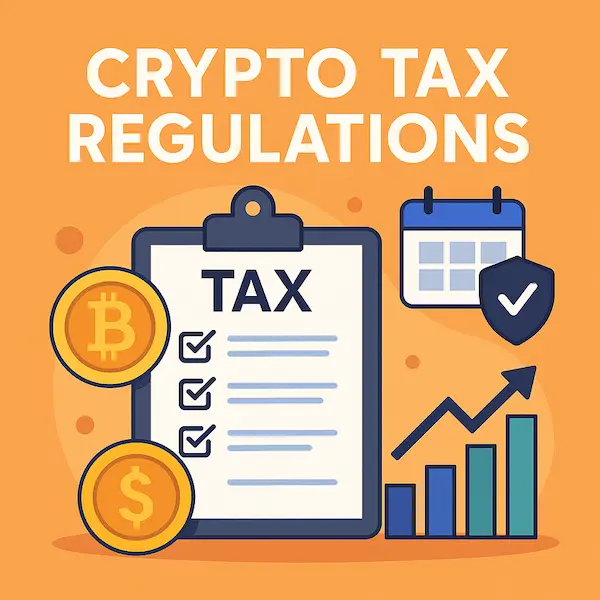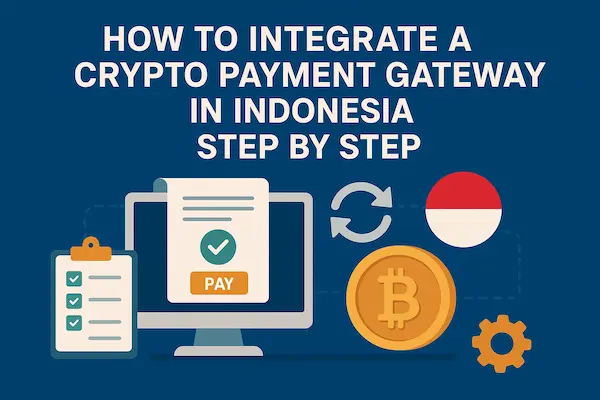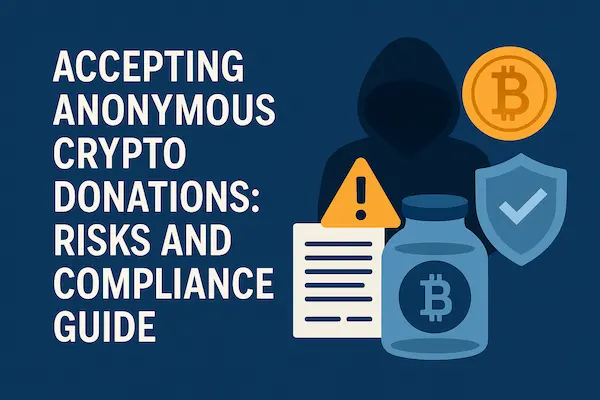The emergence of the cryptocurrency has changed everything about payments in the business model with crypto tax regulations gaining popularity among shopkeepers across the world. Nonetheless, the legal case behind crypto payment gateways is complicated as one needs to consider the overall regulations on the federal level, curtailing laws on the state level, and tax concerns. In this in-depth review article, the author explores important legal and tax questions that companies need to comprehend prior to using cryptocurrency paid solutions.
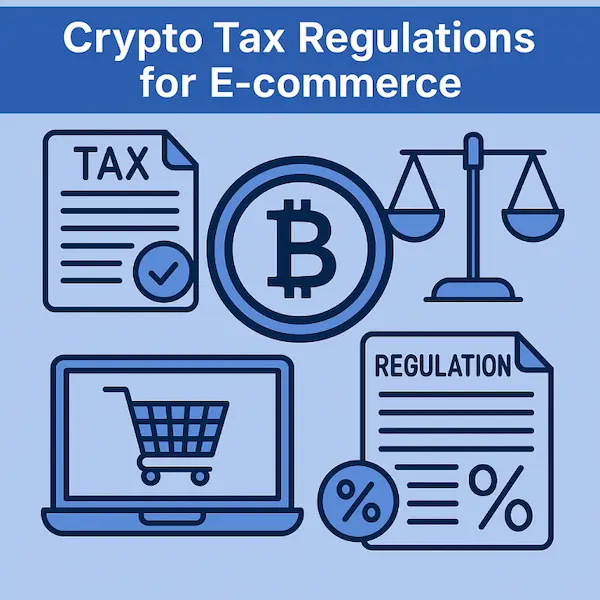
Contents
- 1 Understanding Crypto Payment Gateways
- 2 Federal Regulatory Framework
- 3 State-Level Regulations
- 4 Tax Implications for Businesses
- 5 Compliance Strategies
- 6 Risk Management Considerations
- 7 Industry-Specific Considerations
- 8 International Considerations
- 9 Future Regulatory Developments
- 10 Conclusion
- 11 Frequently Asked Questions
Understanding Crypto Payment Gateways
A crypto payment gateway is an intermediary between the normal business and digital currency by allowing individuals to use cryptocurrencies to purchase goods although it usually automatically converts them to fiat currency. Such networks address the technical challenges of blockchain payments and give merchants the interfaces they are used to in payment processing.
Laws Prohibiting payment technology in relation to cryptocurrency payments are still changing rapidly, and it is crucial that the business can keep up with what is required per the law at the time it does business. Crypto gateways, unlike conventional payment processors, are in a rather new regulatory field involving a broad extent of financial services, technology, and currency conversion regulation.
How Crypto Payment Gateways Work
The majority of the crypto payment gateways operate in a similar fashion. When a customer performs the payment, the gateway creates a distinctive cryptocurrency address of the payment. The customer transfers his cryptocurrency to this address, and the gateway can ensure payment in the blockchain. Depending on the service layout, the gateway can immediately translate the cryptocurrency into a fiat currency or hold it in digital form.
This point of conversion starts the legal implication. Trading Cryptocurrency in to fiat currency is likely a taxable event and has to be reported to the internal revenue service (IRS). Such conversion process also exposes the transaction to different financial laws that might not be applicable in purely cryptocurrency to cryptocurrency transactions.

Federal Regulatory Framework
Securities and Exchange Commission (SEC) Oversight
The SEC has taken an increasingly active role in cryptocurrency regulation, particularly regarding payment tokens that might be classified as securities. While most established cryptocurrencies like Bitcoin and Ethereum are generally not considered securities, businesses using crypto payment gateways must remain aware of SEC guidance on digital assets.
The SEC’s approach focuses on whether a cryptocurrency meets the criteria of the Howey Test, which determines if an asset constitutes an investment contract. Payment tokens used primarily for transactional purposes typically fall outside SEC jurisdiction, but businesses should monitor regulatory developments that might affect their chosen cryptocurrencies.
Financial Crimes Enforcement Network (FinCEN) Requirements
FinCEN has established comprehensive anti-money laundering (AML) and know-your-customer (KYC) requirements for cryptocurrency businesses. Crypto payment gateway legal issues often center around compliance with these regulations, which vary based on the business model and transaction volume.
|
FinCEN Requirement |
Applies to Merchants |
Applies to Gateways |
|
Money Transmitter License |
Generally No |
Usually Yes |
|
AML Program |
Case-by-case |
Yes |
|
Suspicious Activity Reports |
Case-by-case |
Yes |
|
Customer Identification Program |
Limited |
Yes |
Businesses using crypto payment gateways typically inherit some compliance obligations from their chosen provider, but they may also have independent responsibilities depending on their specific use case and transaction patterns.
Internal Revenue Service (IRS) Guidance
The IRS has issued extensive guidance on cryptocurrency taxation, treating digital assets as property for tax purposes. This classification creates specific obligations for businesses using crypto payment gateways, particularly regarding record-keeping and reporting requirements.
Every cryptocurrency transaction potentially creates a taxable event, whether it involves receiving payment, converting to fiat currency, or using cryptocurrency for business expenses. The IRS requires businesses to maintain detailed records of all cryptocurrency transactions, including the date, amount, fair market value at the time of transaction, and the purpose of each transaction.
State-Level Regulations
Money Transmitter Laws
One of the most complicated legal problems that are posed to businesses through money transmitters laws is state money transmitter laws and crypto payment gateway AWS. Although the majority of merchants who have implemented well-established payment gateways are not directly exposed to such regulation, a comprehensive knowledge of compliance requirements burdening their service providers is critical in the evaluation of operational risks.
The definition of money transmission varies in every state, and certain states have developed their cryptocurrency framework. BitLicence New York, which is the example, demands that cryptocurrency firms should secure a special license to be operational in the state. The approaches in the other states have been more cryptocurrency friendly, establishing regulatory sandboxes or making it clear that particular activities do not require a license as a money transmitter.
Consumer Protection Laws
The state consumer protection laws are turning more attention towards cryptocurrency transactions, especially in respect to disclosure, and dispute resolution process. Milestones Businesses providing crypto payment gateway services should guarantee that their processing of payments meets the standards of consumer protection of respective states.
Such legislations usually necessitate such disclosures as transaction costs, exchange rates, and permanency of cryptocurrency exchanges. In some states, a certain cooling-off period or dispute resolution mechanism regarding cryptocurrency payments has been addressed, which a business is required to integrate into their payment processing process.
Considerations on Sales Tax
It is further complicated by the interaction between the payment of cryptocurrencies and the taxation of sales in the state. Laws regarding the treatment of cryptocurrency payments on the side of sales tax vary depending on each state, with most of them regarding the cryptocurrency payment to be treated the same as other form of payments; valuation and reporting may however be more complicated.
|
State Approach |
Tax Treatment |
Reporting Requirements |
|
Traditional |
Same as cash |
Standard sales tax forms |
|
Cryptocurrency-specific |
Special valuation rules |
Enhanced documentation |
|
Uncertain |
Case-by-case determination |
Varies by jurisdiction |


Tax Implications for Businesses
Income Recognition and Valuation
When businesses receive cryptocurrency payments through a crypto payment gateway, they must recognize income at the fair market value of the cryptocurrency at the time of receipt. This requirement applies regardless of whether the cryptocurrency is immediately converted to fiat currency or held in digital form.
The challenge lies in determining the appropriate fair market value, particularly for less liquid cryptocurrencies or during periods of high volatility. The IRS has indicated that businesses should use the fair market value from a reliable cryptocurrency exchange, but this can be complicated when multiple exchanges show different prices.
Record-Keeping Requirements
Comprehensive record-keeping is essential for businesses dealing with crypto payment gateway legal issues. The IRS requires businesses to maintain records that establish the fair market value of cryptocurrency at the time of each transaction, along with supporting documentation for all conversions and related expenses.
Essential records include:
- Date and time of each transaction
- Amount of cryptocurrency received
- Fair market value in USD at time of receipt
- Exchange rate information and source
- Transaction fees and processing costs
- Customer information and invoice details
Deduction Opportunities
Businesses using crypto payment gateways may be eligible for various deductions related to their cryptocurrency payment processing. These can include processing fees, conversion costs, and technology expenses associated with implementing cryptocurrency payment solutions.
The key is maintaining proper documentation to support these deductions, as the IRS may scrutinize cryptocurrency-related business expenses more closely than traditional payment processing costs. Businesses should work with qualified tax professionals to ensure they are maximizing legitimate deductions while maintaining compliance with tax regulations.
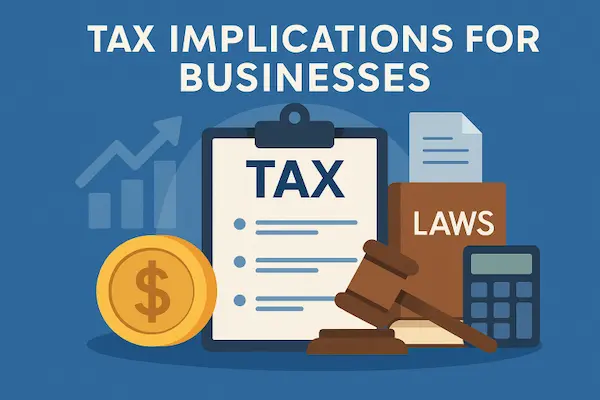
Compliance Strategies
Choosing the Right Payment Gateway
Selecting an appropriate crypto payment gateway requires careful evaluation of the provider’s compliance capabilities and regulatory standing. Businesses should prioritize providers that demonstrate strong AML/KYC procedures, maintain appropriate licenses, and provide comprehensive transaction reporting.
Key evaluation criteria include:
- Regulatory licenses and compliance certifications
- Geographic coverage and legal jurisdictions
- Transaction monitoring and reporting capabilities
- Customer support for compliance issues
- Integration with existing accounting systems
Implementing Internal Controls
Effective management of crypto payment gateway legal issues requires robust internal controls tailored to cryptocurrency transactions. These controls should address both operational and compliance risks while ensuring accurate financial reporting.
Essential internal controls include transaction monitoring systems, regular compliance audits, staff training on cryptocurrency regulations, and clear policies for handling customer disputes. Businesses should also establish procedures for responding to regulatory inquiries and maintaining required documentation.
Professional Advisory Services
Given the complexity of crypto payment gateway legal issues, most businesses benefit from professional advisory services. This typically involves engaging qualified legal counsel familiar with cryptocurrency regulations, tax professionals experienced with digital asset taxation, and compliance consultants who can help design appropriate control systems.
The cost of professional advisory services is generally modest compared to the potential penalties for non-compliance, making this investment essential for businesses serious about cryptocurrency payment processing.
Risk Management Considerations
Regulatory Risk
The regulatory environment surrounding crypto payment gateways continues to evolve, creating ongoing compliance risks for businesses. New regulations can emerge at the federal or state level, potentially affecting existing business operations or requiring significant system modifications.
Businesses should establish monitoring systems to track regulatory developments and maintain flexible payment processing systems that can adapt to changing requirements. Regular communication with legal counsel and industry associations can help businesses stay ahead of regulatory changes.
Technology and Security Risks
Crypto payment gateway legal issues often intersect with technology and security concerns. Businesses must ensure their payment processing systems meet applicable cybersecurity standards while protecting customer information and maintaining transaction integrity.
Key security considerations include:
- Secure key management and storage
- Regular security audits and penetration testing
- Incident response procedures for security breaches
- Customer data protection and privacy compliance
- Integration security with existing business systems
Financial and Operational Risks
Cryptocurrency volatility creates unique financial risks for businesses using crypto payment gateways. Even when payments are immediately converted to fiat currency, businesses may face exposure to exchange rate fluctuations and processing delays.
Effective risk management requires understanding these exposures and implementing appropriate hedging strategies when necessary. This might include setting conversion parameters, maintaining fiat currency reserves, or using financial instruments to manage volatility risk.
Industry-Specific Considerations
E-commerce and Retail
E-commerce businesses face unique crypto payment gateway legal issues related to consumer protection, dispute resolution, and international transactions. The irreversible nature of cryptocurrency transactions requires careful consideration of refund policies and customer service procedures.
Online retailers must also navigate international compliance requirements when accepting cryptocurrency payments from global customers. This includes understanding applicable tax obligations, export controls, and anti-money laundering requirements across different jurisdictions.
Professional Services
Professional service providers using crypto payment gateways must consider ethical and regulatory requirements specific to their industries. Legal professionals, accountants, and financial advisors may face additional restrictions on cryptocurrency payments based on their professional licensing requirements.
Client confidentiality and professional responsibility rules may also affect how professional service providers handle cryptocurrency payment information, requiring specialized compliance procedures and documentation practices.
High-Risk Industries
Certain industries face enhanced regulatory scrutiny when implementing crypto payment gateways. These include financial services, gaming, adult entertainment, and industries with significant regulatory oversight.
Businesses in these sectors must carefully evaluate whether cryptocurrency payments are compatible with their existing regulatory obligations and consider the potential for increased compliance costs or regulatory attention.
International Considerations
Cross-Border Transactions
Crypto payment gateways often facilitate international transactions, creating complex legal and tax obligations across multiple jurisdictions. Businesses must understand the regulatory requirements in each country where they accept cryptocurrency payments.
International cryptocurrency transactions may trigger additional reporting requirements, including foreign bank account reporting, international information returns, and compliance with foreign exchange regulations.
Tax Treaty Implications
For businesses with international operations, cryptocurrency payments may be subject to tax treaty provisions that affect withholding requirements and tax obligations. The interaction between cryptocurrency transactions and existing tax treaties remains an evolving area of tax law.
Businesses should consult with international tax professionals to understand how cryptocurrency payments might affect their global tax obligations and ensure compliance with applicable treaty provisions.
Future Regulatory Developments
Proposed Federal Legislation
There are various instances of the federal bills that are being considered to legislate cryptocurrency as well. Such suggestions might have a great impact on the legal aspects of crypto payment gateways, such as establishing the regulatory framework or removing any doubts about the legal issues of the gateways.
Companies are supposed to keep abreast of legislative processes and reflect on how pending revisions can impact on their systems of processing cryptocurrencies as payments. Future readiness on possible regulatory change can serve to reduce the cost of any interference and compliance.
State-Level Innovations
Most of the states are working on new ideas of regulating cryptocurrency such as the regulatory sandboxes, blockchain-friendly laws and guidelines that are made clearer to cryptocurrency business. Such changes might generate new possibilities or responsibilities of companies relying on the use of the crypto payment gateway.
This disjointed patchwork of state regulations is changing, and it is critical that businesses remain aware of changes taking place in the jurisdictions within which they operate and do so through the prism of how such changes on the state level may impact on their operations.
Conclusion
To successfully work within the legalized crypto payment gateway environment, it is important to understand the federal laws, state laws, and the taxation. The regulatory situation is developing at the fastest pace, which is why continuous monitoring of compliance on the part of the business should be provided to address issues with the application of cryptocurrency payment solutions.
Adequate planning, professional advice, and effective compliance mechanisms are necessary to carry out a successful deployment of crypto payment gateways. Companies which actively approach these regulatory and fiscal implications can exploit the advantages associated with cryptocurrency payments without having to face excessive regulatory risk.
The best solution to legal concerns about crypto payment gateway is to have an insight in the way in which cryptocurrency regulation influences various business processes, including payment processing and taxes to be reported, interactions with clients and cross-border compliance. One can ensure operational effectiveness by holding a wide scope of compliance approach and keeping abreast of changes in regulations.
Companies are able to effectively incorporate cryptocurrency payments into their practice being completely law-abiding.The more the cryptocurrency payment world is maturing, the more organizations can gain a strong foundation of compliance now and stand to improve their compliance more easily in the days to come as the digital payment ecosystem evolves.
Frequently Asked Questions
1. Do I need a money transmitter license to accept cryptocurrency payments through a payment gateway?
Generally, no. Most businesses using established crypto payment gateways are not required to obtain money transmitter licenses because the gateway provider typically holds the necessary licenses. However, businesses should verify their specific situation with legal counsel.
2. How do I determine the fair market value of cryptocurrency payments for tax purposes?
The IRS requires businesses to use the fair market value from a reliable cryptocurrency exchange at the time of receipt. Many businesses use the price from major exchanges like Coinbase or Binance, but should maintain documentation of their valuation methodology.
3. Are cryptocurrency payments subject to sales tax?
Yes, most states treat cryptocurrency payments the same as cash for sales tax purposes. The sales tax obligation is based on the fair market value of the cryptocurrency at the time of the transaction.
4. What records must I maintain for cryptocurrency transactions?
Businesses must maintain comprehensive records including the date and time of each transaction, amount of cryptocurrency received, fair market value in USD, exchange rate information, transaction fees, and customer details.
5. Can I deduct cryptocurrency payment processing fees?
Yes, legitimate business expenses related to cryptocurrency payment processing, including gateway fees, conversion costs, and related technology expenses, are generally deductible. Proper documentation is essential to support these deductions.
6. How do international cryptocurrency payments affect my tax obligations?
International cryptocurrency payments may trigger additional reporting requirements, including foreign bank account reporting and compliance with international tax treaties. Businesses should consult with international tax professionals for guidance.
7. What happens if cryptocurrency regulations change after I implement a payment gateway?
Businesses should establish monitoring systems to track regulatory developments and maintain flexible payment processing systems that can adapt to changing requirements. Regular communication with legal counsel helps ensure ongoing compliance.
8. Are there specific industries that face additional restrictions on cryptocurrency payments?
Yes, certain industries including financial services, gaming, and adult entertainment may face enhanced regulatory scrutiny or additional restrictions when implementing crypto payment gateways. Industry-specific compliance requirements should be carefully evaluated.
For daily updates, subscribe to XAIGATE’s blog!
We may also be found on GitHub, and X (@mxaigate)! Follow us!
Don’t miss out on the opportunity to elevate your business with XAIGATE’s Are You Ready for Crypto Tax Regulations? E-commerce Survival Guide The three-step process is designed to be user-friendly, making it accessible for all businesses. Embrace this modern payment solution to provide customers with a secure and efficient way to pay. Take the first step towards a competitive edge in the digital realm and unlock the benefits of cryptocurrency payments for online casino today.
Looking to integrate seamless accept crypto payments into your business? XAIGATE provides blockchain-native tools for merchants, developers, and enterprises to accept decentralized payments with confidence. Start setup crypto wallet for nonprofit donations today.

